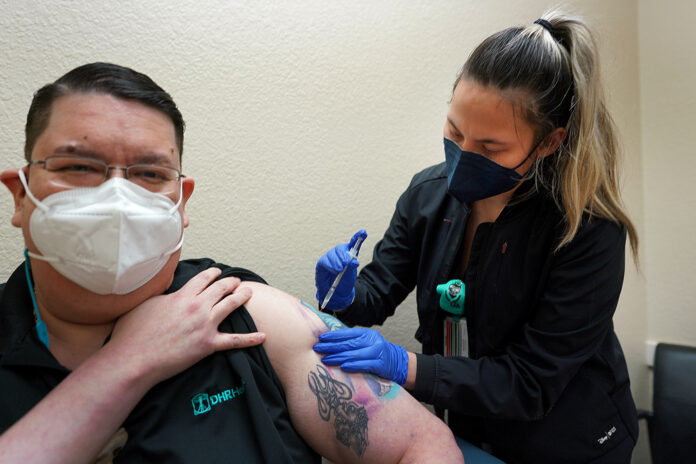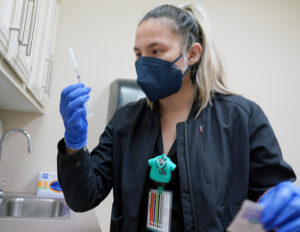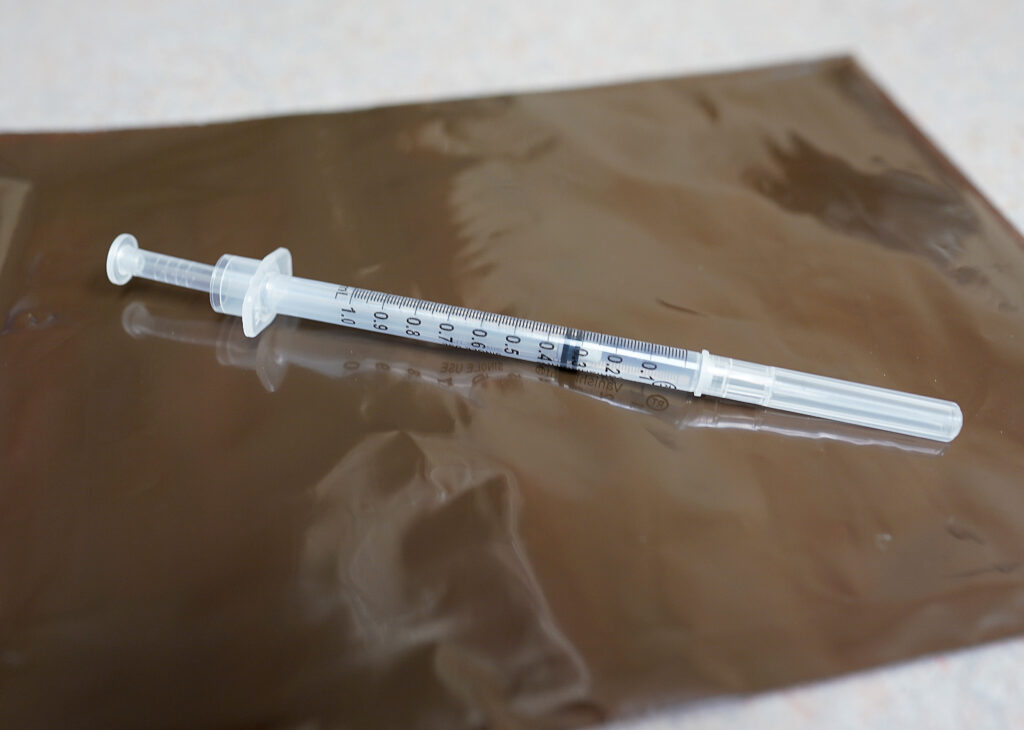
DHR Health is now the first entity in the country to offer fourth doses of the COVID-19 vaccine after the FDA gave the DHR Health Institute for Research and Development its approval to administer the doses.

On Monday, DHR Health began offering a fourth dose of the Pfizer-BioNTech vaccine to healthcare workers, individuals over the age of 65 or individuals who are immunocompromised.
The hospital’s research institute became the first to receive authorization by the U.S. Food and Drug Administration on Friday, which President and CEO Dr. Sohail Rao explained was likely because they were the first to apply for it.
“We had been working with the FDA since December — once the studies were released in Israel and other European countries that the fourth dose is actually effective in preventing breakthrough infections,” Rao said.
The hospital wanted to administer fourth doses because of scientific evidence that showed an additional dose would provide protection against the omicron variant, he added.
“If science is dictating our actions, then my strong recommendation to all health care workers and all those who qualify, is to actually get the fourth dose and enhance their protection against (the) omicron variant of this virus,” he said.
Unlike the second and third dose of the vaccine, which were recommended at least six months after the previous dose, health officials only recommend waiting 90 days after the third dose to get the fourth dose.
People who recently tested positive for COVID-19 can still receive the fourth dose 21 days after they stopped showing symptoms.
Currently, DHR is only administering the fourth dose by appointment so that health officials can continue to monitor their antibody levels.
“We want (to) provide them with the knowledge as to how their immune system is responding,” Rao said, “so we would be doing levels of antibody testing in these individuals at frequent intervals both before and after giving the fourth dose so that we have a better idea as to when their antibody levels start to drop.”
The hope is that by monitoring their antibody levels — particularly in people who are diabetic, people who have hypertension and people who might be obese — researchers can see if their antibody levels drop earlier compared to individuals without those conditions.
“At the time of getting the fourth dose, before that, we will draw some blood and we will provide, within 24 hours, the results of that to them through whichever mechanism or means that they have identified,” Rao said.
They will check their levels again at the 21 day-mark, at six weeks, 12 weeks and then at 24 weeks.
“We will measure the antibody levels and we will actually provide them, in (a) graphic, how their antibody levels have either sustained, increased or have gone down over the period of time,” he said.

Rao said he’s also received calls from people inquiring about an omicron-specific vaccine — which is currently in clinical trials. However, he urged people not to wait for that vaccine, noting that it’s still unknown whether it will actually provide increased protection, and even if results are promising, that vaccine is unlikely to be ready for the public until June or July.
“My advice to them is don’t wait,” Rao said of people interested in the omicron-specific vaccine. “If we are still talking about six months to seven months down the line, there is a great possibility that you may have breakthrough infections and, in which case, the only way you can protect yourself is to get the fourth dose.”
He added that people can protect themselves with a fourth dose and still obtain the omicron-specific vaccine when, and if, it finally becomes available.
“So there is no reason why you should delay getting this vaccine, the fourth dose,” Rao said.
Anyone who is interested in receiving the fourth dose is asked to call (956) 362-2392 or (956) 362-2387.
They can also email the research institute at [email protected] or send a fax with the relevant patient information to (956) 362-2383.




